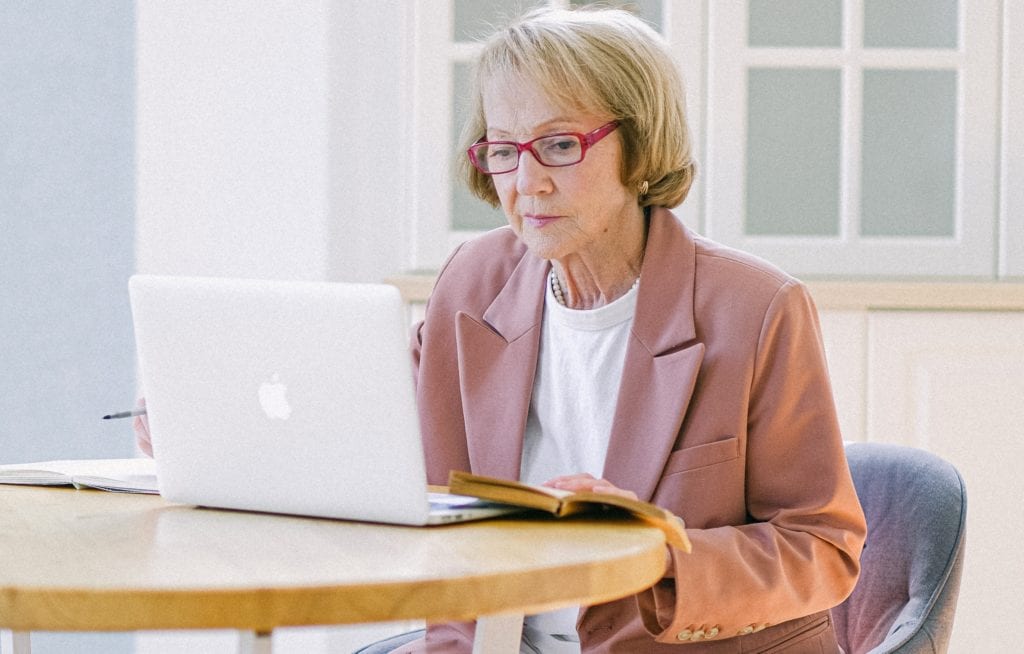During COVID, Georgetown Boosted Its ‘Silver City’ Appeal
By • April 26, 2021 0 2326

When the COVID-19 crisis was declared and D.C. shut down, seniors in Georgetown appeared to be in for the worst. The first case in the District was the Rev. Tim Cole, beloved pastor of Christ Church on 3116 O St. NW. From his hospital bed, on a ventilator, Cole wrote an email urging the hundreds of parishioners who had taken communion and mixed with him the Sunday before to self-quarantine at home.
Most all did. Volunteers left food and supplies at their doorsteps, waving at the residents through the windows of their homes. As cases mounted, the streets emptied of traffic. Georgetown’s vibrant restaurants and cafes and almost all retail stores were closed.
Everywhere the crisis hit, people over 60 years old were considered the most vulnerable, both to contract the highly contagious virus and to die — especially those in close quarters and with recognized underlying conditions, such as diabetes, heart and lung diseases and obesity. The death rate among seniors remained four times that of the rate for those under 60; of the 1,099 deaths recorded in D.C. as of April 23, 2021, 895 were of persons aged 60 and above and 204 were of persons under 60. Five of the fatalities occurred among those 20 to 29 and no deaths were reported in the 19-and-under age group.
“Those first months we shut down all our activities and services except to buy and bring to housebound seniors food and medicine,” Georgetown Village Executive Director Lynn Golub-Rofrano told The Georgetowner.
People were scared. And isolated. Many were not computer-savvy and thought of “zoom” only as an aeronautical term. Studies by the National Institutes of Health and articles in magazines such as American Medicine Today and Nature from those early months of the pandemic cited a range of disastrous impacts on seniors, including depression, increased loneliness, psychological distress, frailty and threat of illness and the loss of social support. In addition, noted Medical News Today last May: “Overall, lockdowns mean that more elders are trapped with their abusers.”
The death toll in D.C. reflected a high percentage of seniors throughout the District. AARP seniors (over age 50 or so) make up about one-third of Georgetown’s population, according to real estate demographic data; the average age is about 38 years old, slightly higher than D.C.’s overall average of about 34.
But now, a year later, several positive things appear to have come out of the pandemic — and some may be permanent. Georgetown has become even more of a “Silver City”: one that offers a lifestyle and amenities attractive to people as they grow older.
“Everyone I know who are recent arrivals came from the suburbs. Most are empty-nesters,” said Rick Murphy, who chairs the Georgetown-Burleith advisory neighborhood commission.
There is no denying that, partly due to the pandemic, seniors have increased their technology skills, becoming more accustomed to the internet and social media (and, like everyone else, Zoom). “We have an increase in members and friends taking online courses, participating in book talks, getting information about the virus and medical care online, even attending virtual galas and coffee chats. And the majority are on camera, looking good,” said Golub-Rofrano.
Seniors are paying bills and banking more online. Increasingly, they are buying goods online, including groceries, often delivered free to their doors. Many senior friends of this reporter have gotten used to playing bridge online this year. Their book clubs are on Zoom, where they can actually hear the discussions.
They have remodeled properties, negotiated rental contracts and bought and sold homes, all online. Many have found that there are more opportunities to work and even to do volunteer jobs from home via their computers. And, of course, there is an increase in communication with family members via social media (although most can’t wait to meet in person, to give and get those special hugs).
What’s more, the measures to restore Georgetown’s commercial life, such as streateries, can be beneficial to seniors, points out Georgetown Business Improvement District CEO Joe Sternlieb. “The protected streateries platforms at the same level of curbs provide safe outdoor dining space for everyone, even with walkers and canes,” he said, adding that “the social distancing in and outside of restaurants enables everyone, especially seniors, to hear better.”
This story was supported by a Journalists in Aging Fellowship from the Gerontological Society of America, the Journalists Network on Generations and the Silver Century Foundation.

